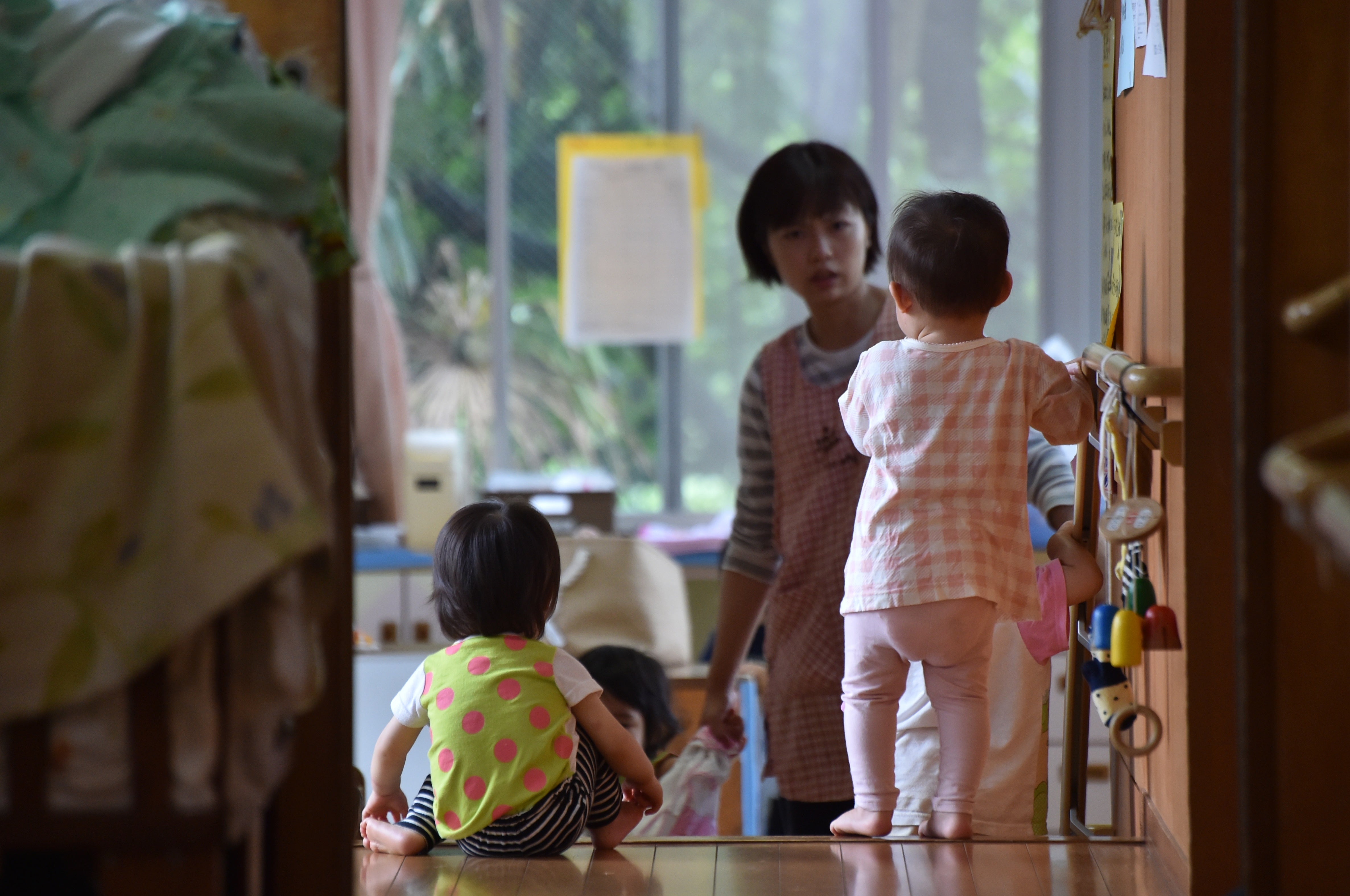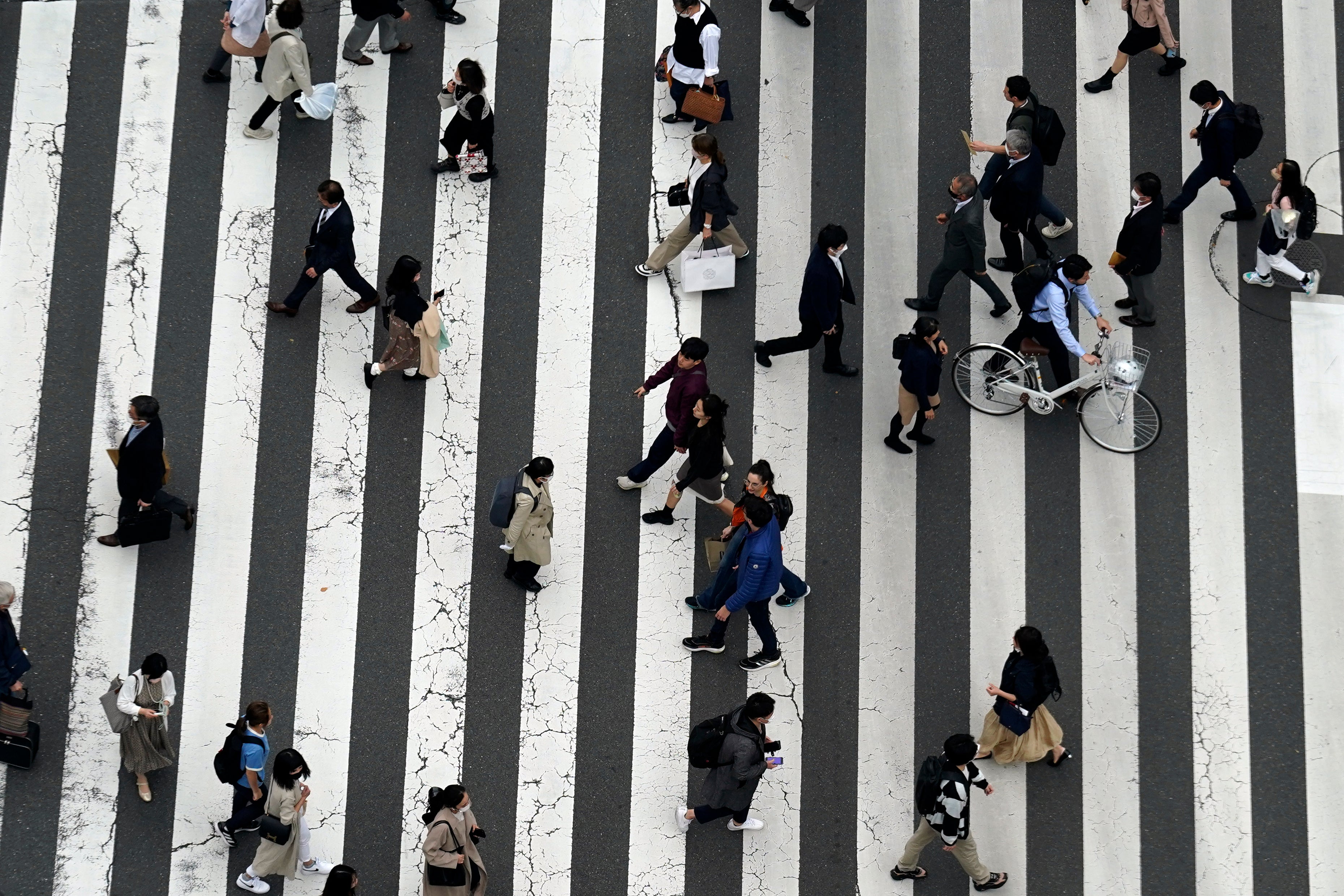Japan’s birth rate hits critical level as population warned of ‘last chance to reverse trend’
The 727,277 babies born in Japan in 2023 were down 5.6% from the previous year

Your support helps us to tell the story
From reproductive rights to climate change to Big Tech, The Independent is on the ground when the story is developing. Whether it's investigating the financials of Elon Musk's pro-Trump PAC or producing our latest documentary, 'The A Word', which shines a light on the American women fighting for reproductive rights, we know how important it is to parse out the facts from the messaging.
At such a critical moment in US history, we need reporters on the ground. Your donation allows us to keep sending journalists to speak to both sides of the story.
The Independent is trusted by Americans across the entire political spectrum. And unlike many other quality news outlets, we choose not to lock Americans out of our reporting and analysis with paywalls. We believe quality journalism should be available to everyone, paid for by those who can afford it.
Your support makes all the difference.Japan’s birth rate has fallen to a new low for the eight straight year, according to Health Ministry data.
A government official described the situation as critical and urged authorities to do everything they can to reverse the trend.
The data underscores Japan's long-standing issues of a rapidly aging and shrinking population, which has serious implications for the country's economy and national security — especially against the backdrop of China's increasingly assertive presence in the region.
According to the latest statistics, Japan's fertility rate — the average number of babies a woman is expected to have in her lifetime — stood at 1.2 last year. The 727,277 babies born in Japan in 2023 were down 5.6% from the previous year, the ministry said — the lowest since Japan started compiling the statistics in 1899.
Separately, the data shows that the number of marriages fell by 6% to 474,717 last year, something authorities say is a key reason for the declining birth rate. In the predominantly traditional Japanese society, out-of-wedlock births are rare as people prize family values.
Chief Cabinet Secretary Yoshimasa Hayashi told reporters that it's "a critical situation.” The next six years, until the 2030s, will be “the last chance for us to possibly reverse the trend,” he said.
Hayashi noted economic instability, difficulties in balancing work and childrearing and other complex factors as main reasons why young people have a hard time deciding to get married or raise children.

The data was released as Japan's parliament on Wednesday approved a revision to laws designed to beef up financial support for childrearing parents or those expecting babies, as well as to widen access to childcare services and expand parental leave benefits. The government earmarked 5.3 trillion yen ($34 billion) as part of the 2024 budget for this, and is expected to spend 3.6 trillion yen ($23 billion) in tax money annually over the next three years.
Experts say the measures are largely meant for married couples who plan to have or who already have children, and are not addressing a growing number of young people reluctant to get married.
Takahide Kiuchi, an executive economist at Nomura Research Institute, said the measures fall short of addressing the problem.
“Simple economic measures such as increase of subsidies are not going to resolve the serious problem of declining births,” Kiuchi wrote in an analysis report, adding that a conservative mindset espousing traditional gender roles at home and at the workplace also needs to change.
Surveys show that younger Japanese are increasingly reluctant to marry or have children, discouraged by bleak job prospects, the high cost of living — which rises at a faster pace than salaries — and a gender-biased corporate culture that adds an extra burden only on women and working mothers.
Japan's population of more than 125 million people is projected to fall by about 30%, to 87 million by 2070, with four out of every 10 people 65 years of age or older.